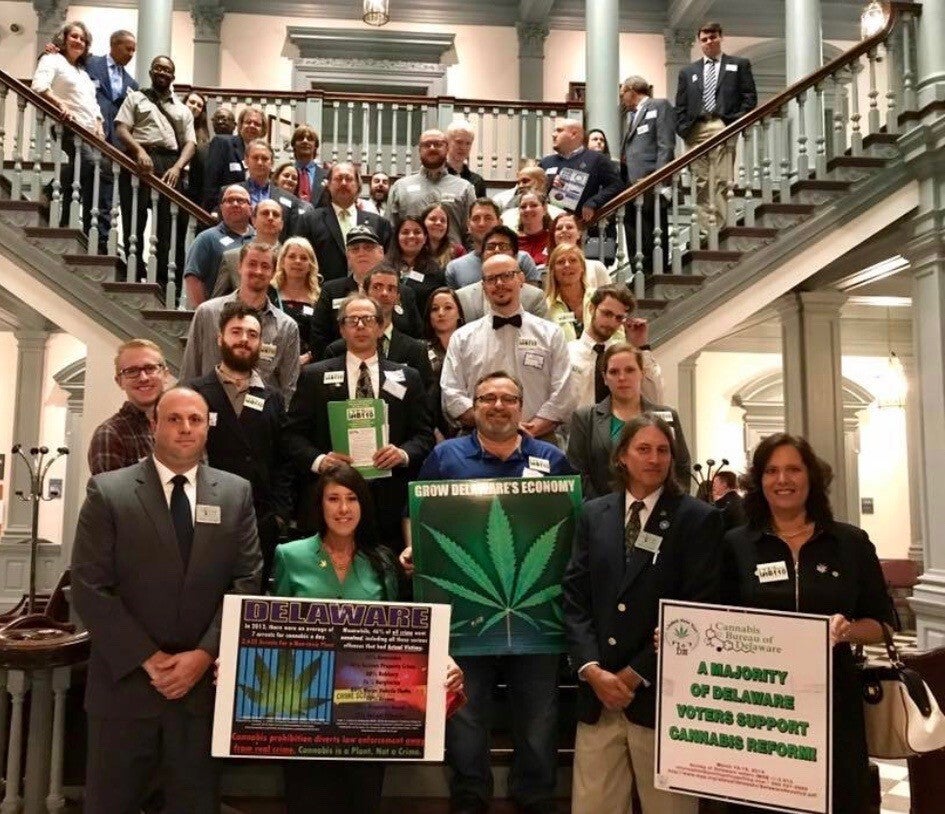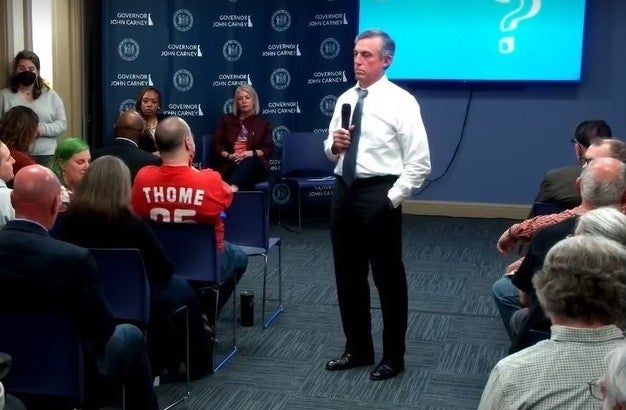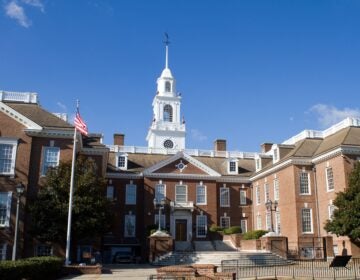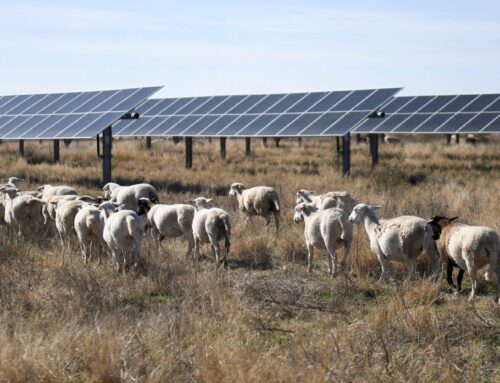More than 2 years after legalization, Delaware still has no marijuana retail stores
May 27, 2025
From Philly and the Pa. suburbs to South Jersey and Delaware, what would you like WHYY News to cover? Let us know!
In Wilmington, where the mayor opposed but couldn’t stop the legalization of marijuana in 2023 when he was Delaware’s governor, city lawmakers have finally decided where recreational weed stores and other cannabis businesses can be located.
So has Dover, where the mayor recently tried to block cannabis establishments. Newark, home to the University of Delaware, also has carved out possible locations for weed businesses.
“It’s going in the right direction now,’’ said Paul Hyland, the state’s deputy marijuana commissioner. “It was just a matter of everyone getting on board.”
While Delaware’s three largest cities are allowing, if not exactly encouraging, the new marijuana industry, not everybody is actually on board two years and two months after the General Assembly legalized weed and created the framework for a regulated market.
Many municipalities, including Middletown in New Castle County, the state’s fourth-largest town, and most beach towns in Sussex County have banned weed businesses. In addition, Delaware’s southernmost county also has created so many zoning restrictions that cannabis advocates say it’s a total ban, but a bill that has passed the Senate and is before the House would supersede the Sussex law.
The state’s fledgling marijuana office also has secured a legislative fix to delays in FBI background checks for licensees. Now, officials are in the process of evaluating and then issuing 125 licenses to create an adult-use market. Additionally, some of the existing medical marijuana operators that already grow their own pot and make products are getting so-called conversion licenses to help kick-start the adult-use recreational market.
So the stage is finally set, but when will the curtain actually open? When can a customer walk into a Delaware business and buy legal buds or gummies?
That remains an unanswered question.
‘Implementation has been completely botched’
Initially, the timetable envisioned by advocates and state officials had stores opening by Christmas of 2024. Then, it was pushed back to this spring.
But bureaucratic and legal delays keep pushing back the start date.
Hyland said a few cultivation sites could be putting seeds in the ground within days. At the same time, some manufacturing sites could start making oils, gummies, brownies, lollipops and other cannabis concoctions.

Hyland said the earliest he sees a store welcoming customers is August, however. He stressed that the decision on when the industry can formally launch will be made in the coming weeks by new Marijuana Commissioner Joshua Sanderlin and other leaders in Gov. Matt Meyer’s administration. Sanderlin, who took office May 16, would not comment.
The continued delays and local restrictions continue to infuriate Zoë Patchell, who heads the Delaware Cannabis Advocacy Network. She said the market should have been operating long ago.
“An overwhelming majority of Delawareans supported this, and local government that fundamentally opposed legalization is just obstructing the process and thwarting the will of the people,” said Patchell, a member of the Delaware Marijuana Act Oversight Committee.
She said the state marijuana office has been plodding at best in implementing the law.
“The agency is only halfway through even processing the new businesses, which were all supposed to be licensed in the fall,” Patchell said. “So implementation has been completely botched.”
‘Looking forward to having businesses set up and flourish’
While progress has been sluggish, the process of creating a market has moved along in increments.
Take Wilmington, a city of 72,000 that is by far the most populated in the tiny state of about 1 million people.
The state law that allows municipalities to ban legal weed facilities also lets them set boundaries for where they can be located.
So last fall, the administration of then-Mayor Mike Purzycki had proposed allowing facilities in commercial and manufacturing districts with a 100-foot buffer from any residential zoning district and from public or private K-12 schools.
The city’s Planning Commission then recommended a 300-foot buffer, and to permit retail and testing facilities in waterfront districts with zoning board permission. That includes the Christina riverfront that has hundreds of apartments and restaurants, shops, a minor league baseball stadium and a movie theater.
Purzycki left office in January and was succeeded by incumbent Gov. John Carney, who by law was barred from seeking a third term. Carney won the Democratic mayoral primary and was unopposed in the November general election.
In 2022, then-Gov. Carney had vetoed legalizing weed, but after the measure passed again in 2023 with what appeared to be a veto-proof majority, Carney let it become law without his signature.

And this month, the Wilmington City Council approved the 300-foot buffer as well as the waterfront uses. That law essentially allows facilities east and south of downtown, and in a couple of small commercial strips in the heavily populated southwestern part of town.
City Councilman Chris Johnson, who sponsored the bill, said he’s satisfied that members have decided on potential locations.
“We believe the barriers we set up are reasonable and set reasonable guidelines so that there’s a balance,” Johnson said. “We’re looking forward to having businesses set up and flourish come the fall.”
Johnson, who is an attorney, said he preferred the 100-foot buffer “but we’ve got to start somewhere.”
Johnson hopes City Council will eventually approve a less-restrictive map for possible locations, a sentiment that Council President Trippi Congo has also expressed.
Johnson said he’s visited medical marijuana facilities in Delaware and is impressed by their low-key presence.
“It kind of dispels the bogeyman myth, where it’s just an out-of-control circus’’ Johnson said. “Most of these are nondescript. You wouldn’t even know they’re there. And in fact, they’re heavily guarded and safe.”

“I think once people start seeing shops, the walls are going to start to come down. I think people are going to realize these are good neighbors and this a safe industry and the problems they’re seeing in neighborhoods are more related to the smoke shops and corner stores and the liquor stores, not marijuana shops.”
Mayor Carney said his administration and City Council “struck the right balance” between members who wanted a total ban and those who wanted fewer restrictions.
“That was really the objective, to respect the opinions of people that live in the neighborhoods,’’ Carney said in an interview. “The city is very densely populated and we’ve had trouble over the years with liquor stores as nuisances in certain neighborhoods. And not to suggest that they would be the same, but this is a similar kind of activity.”
Patchell disagrees that Wilmington’s approach is balanced. She said it’s yet another example of local lawmakers disregarding what people want in a city where people have traditionally been arrested at higher rates for having weed or selling small amounts. Marijuana possession was illegal until the 2023 state law permitted people 21 and older to have up to an ounce.
“The restrictive zoning in Wilmington is especially disappointing considering that Wilmington is a disproportionately impacted area,’’ Patchell said.
“You have a lot of low-income residents in Wilmington that will simply have no safe access. That will inevitably undermine the intent of the legislation and turn people back to the illicit market. Where people don’t have readily available access to cannabis, illicit market sales will continue.”
This story was supported by a statehouse coverage grant from the Corporation for Public Broadcasting.

Get daily updates from WHYY News!
WHYY is your source for fact-based, in-depth journalism and information. As a nonprofit organization, we rely on financial support from readers like you. Please give today.
Search
RECENT PRESS RELEASES
Related Post









